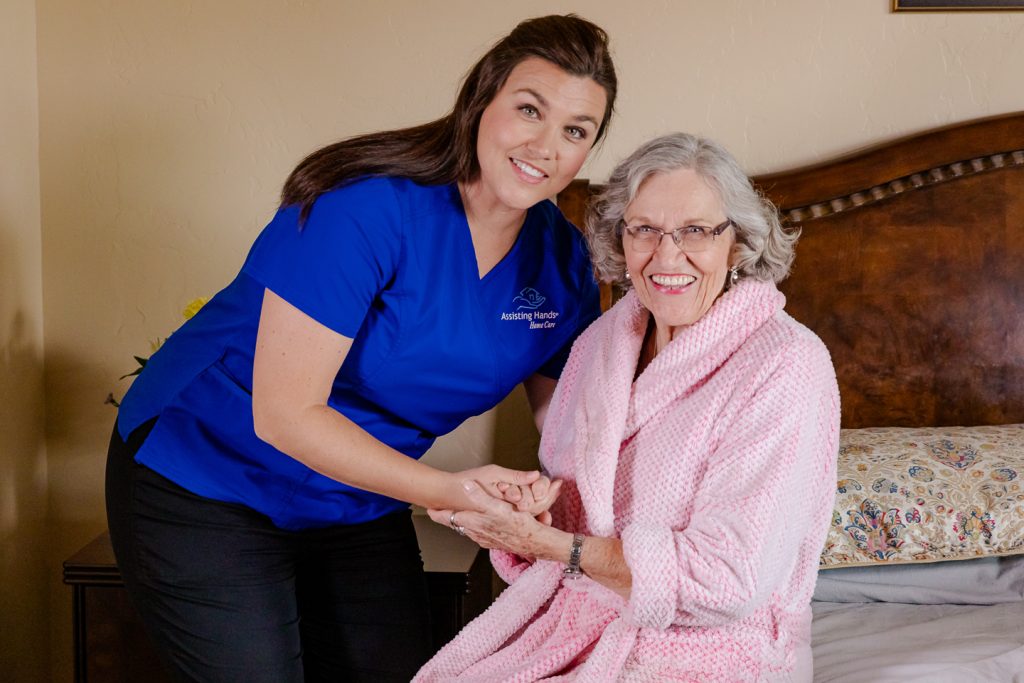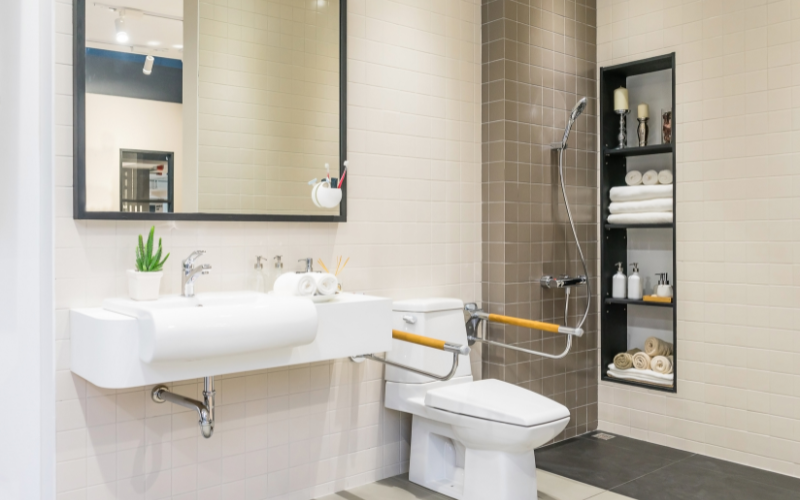
Seniors who experience some level of physical or cognitive decline may require extra support at home. Families may look into in-home services, such as home care or home health care. Both services provide hands-on care in the senior’s home but differ in many ways.
Receiving care at home is important to the majority of seniors, as they prefer to age in place. Home is familiar, secure, and comfortable. Plus, by remaining at home for as long as possible, the elderly have the opportunity to maintain ties with their community, friends, and family.
Home care and home health care make it possible for seniors to age in place. These in-home services are provided by professionals. Depending on the specific type of care, the caregivers may hold the proper licenses; credentials are especially important when hiring home health care providers.
The primary difference between home care and home health care is that the former involves non-clinical services. On the other hand, home health care is provided by licensed medical professionals who deliver a range of medical assistance. Both services are provided at home.
1. Home care provides non-medical care
Custodial care duties are carried out by home care professionals. These non-medical care services are designed to support seniors with the activities of daily living. Caregivers offer in-home assistance, which allows the aging care recipients to remain independent at home.
Examples of home care services include help with personal hygiene tasks, like bathing, grooming, and toileting. Caregivers clean the senior’s home, helping them live in hygienic, comfortable surroundings. Home care providers give medication reminders—but do not directly administer medications.
Companionship is also a vital component of home care. Caregivers keep seniors socially engaged with games, conversations, outings, and leisure activities. Without regular companionship, older adults who live alone can feel disheartened by feelings of loneliness, social isolation, and depression.
Home care professionals transport seniors to local destinations, such as doctors’ offices, senior centers, grocery stores or exercise classes. They also accompany the elderly care recipient throughout their outings to give them greater confidence, ensure safety, and be a reliable source of support.
2. Home health care provides medical care
Being clinical in nature, home health care delivers medical care to the senior in the comfort of home. Seniors who have returned from the hospital and are recovering from an illness, surgery, or injury transition to home health care to accelerate their healing and maintain independence.
Skilled professionals deliver nursing care and wound care as well as rehabilitative therapies, like physical therapy, occupational therapy, and speech therapy. The home health care team is qualified to perform medical tests, administer medications, treat injuries, and give injections and IV therapies.
Home health care professionals tend to the medical needs of aging care recipients and therefore do not offer the non-medical care services provided by home care providers. For example, people who provide home health care services do not perform housekeeping, provide companionship, or bathe the senior.
It is common for seniors to combine both home care and home health care services. This is an ideal approach when one form of care fails to meet all the demands necessary to support the holistic health of an aging person living at home.
For example, a senior who is recovering from a physical injury will need home health care for pain management and wound care. At the same time, the aging individual will benefit from light housekeeping and transfer assistance, which are provided by home care professionals.
3. Home care and home health care involve logistical differences
Seniors who seek home care are not required to meet eligibility criteria. Anyone who wishes to hire home care can do so without a doctor’s order. Home health care, however, can only begin with a doctor’s order; the aging patient must also meet certain eligibility criteria.
The length of home care is determined by the aging care recipient and their families. If needed, home care can continue for as long as it is within their budget. However, the duration of home health care is established in the doctor’s order as well as by needs and eligibility.
Schedules are flexible with home care. Custodial caregivers are available to deliver care for as long as a senior requires it, whether that is for a few hours or 24/7. Home health care teams, on the other hand, visit a few days per week or per the doctor’s order.
Home care is paid out-of-pocket by seniors or their families. When the elderly individuals meet the criteria, home care may be covered by Medicaid or, in some instances, long-term care insurance. Home health care, conversely, is covered by Medicare, Medicaid, or private insurance.

When seniors need extra support, home care and home health care are viable solutions. If your aging loved one is not in need of non-medical care, the senior home care from Assisting Hands Plano TX will be invaluable to their overall physical, emotional, and social health.
Our home care agency delivers exceptional non-medical senior care to individuals in the comfort of their home. Professional caregivers are trained and qualified to provide hands-on assistance with the activities of daily living, which helps the elderly remain independent at home for as long as possible.
Included in our care services are help with personal hygiene tasks, meal preparation, grocery shopping, medication reminders, transportation, light housekeeping, transfer assistance, and fall-risk assessments. We also serve as pleasant companions, keeping seniors socially active with games, conversations, and outings.
Assisting Hands Home Care also offers specialized care. We provide compassionate memory care to seniors with Alzheimer’s or dementia, post-surgical care to older adults who have returned from the hospital, 24-hour care, live-in care, and hospice care for the last stage of life.
Families in need of reliable in-home care turn to Assisting Hands Home Care. We are privileged to serve the care needs of aging individuals living in Frisco, TX | Plano, TX | Allen, TX | Little Elm, TX | Prosper, TX, and the surrounding areas. Call us at (214) 609-1340 to schedule a complimentary in-home consult and start the journey toward improved health and well-being.







